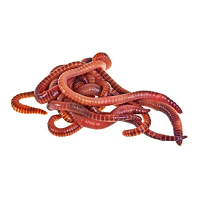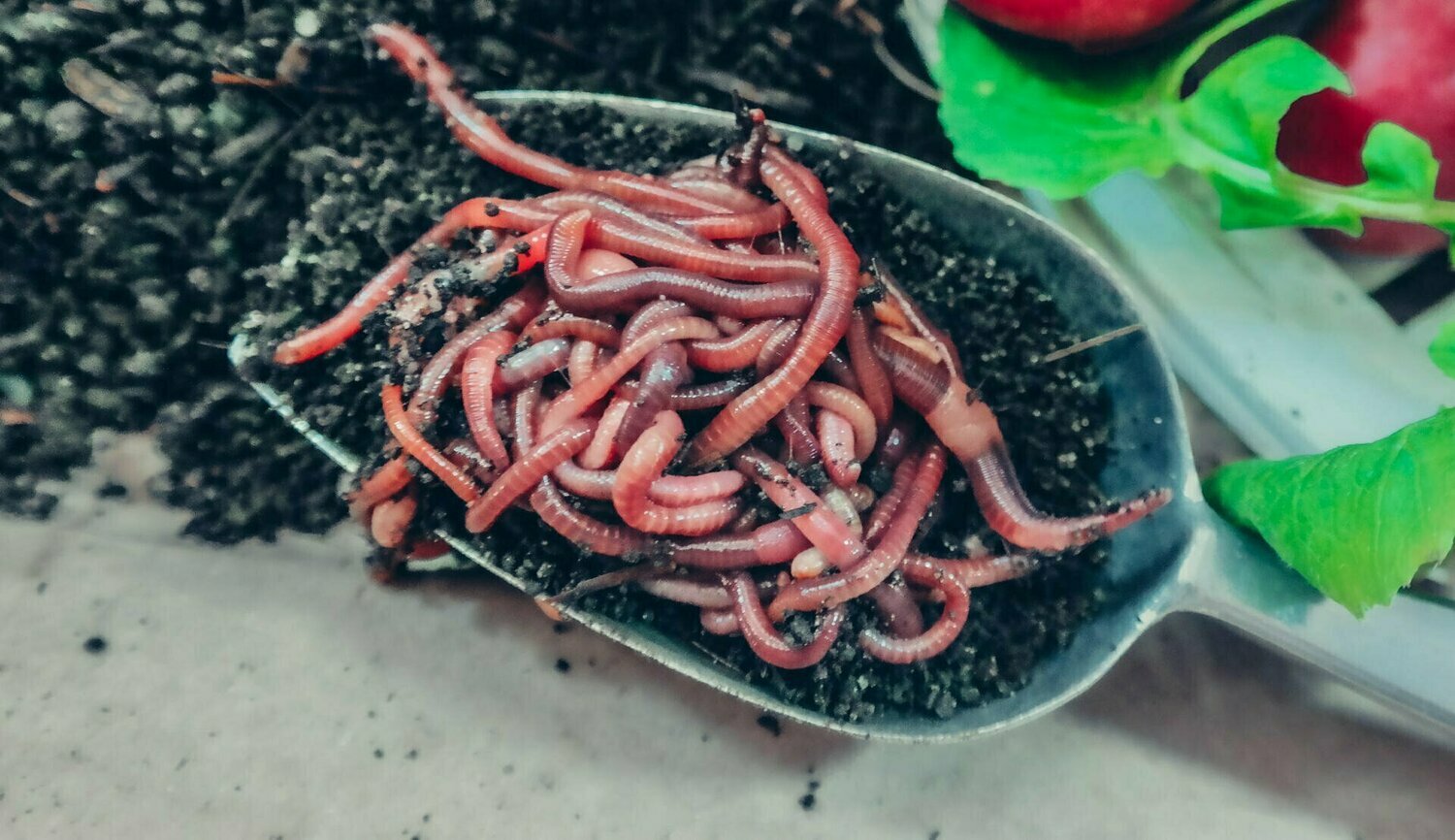Red worms: How to grow them efficiently
Red worms: How to grow them efficiently
Blog Article
Why Red Wigglers Are Vital for Chemical-free Farming
Red wigglers play a critical duty in organic farming, largely with their one-of-a-kind capability to decay organic products and enhance dirt health. The degree of their influence on agricultural techniques and soil biology increases fascinating concerns concerning the future of organic farming.
Function of Red Wigglers in Dirt Health

Additionally, red wigglers improve soil structure by creating channels as they burrow. These channels boost oygenation and water seepage, advertising a much healthier origin setting. Their task additionally assists in maintaining optimum dampness levels, which is vital for healthy and balanced plant growth.

Benefits of Worm Spreadings
Worm castings, the nutrient-rich excrement generated by red wigglers, work as an effective amendment for chemical-free farming. These spreadings are brimming with essential nutrients such as nitrogen, phosphorus, and potassium, which are essential for plant growth. Unlike artificial fertilizers, worm castings launch nutrients gradually, offering a constant supply over time and minimizing the threat of nutrient leaching and runoff.
Moreover, worm spreadings enhance soil framework and oygenation, promoting healthier origin systems. Their high natural matter material boosts dampness retention, enabling plants to better stand up to dry spell conditions. Furthermore, worm spreadings contain useful microbes that sustain plant wellness by suppressing microorganisms and improving vitamins and mineral uptake.
The application of worm spreadings can lead to enhanced crop yields and enhanced high quality of fruit and vegetables, making them a vital resource for natural farmers. Their usage likewise lines up with lasting farming methods, adding to dirt fertility without the adverse ecological influences connected with chemical look at these guys fertilizers. Generally, the unification of worm spreadings right into farming methods promotes an extra resistant and effective ecosystem, underscoring the importance of red wigglers in natural farming systems.

Enhancing Nutrient Cycling
(red wiggler compost bin)Nutrient biking is an important process in natural farming, and the assimilation of red wigglers plays an essential role in boosting this cycle. These earthworms contribute significantly to the failure of raw material, assisting in the change of intricate organic products right into simpler, more available nutrients for plants. As red wigglers consume decaying raw material, they secrete nutrient-rich castings, which are bursting with beneficial microbes. This microbial activity further aids in the disintegration process, ensuring that essential nutrients are conveniently offered for plant uptake.
Additionally, red wigglers help to accelerate the mineralization of nutrients, transforming them from inert forms right into bioavailable kinds that plants can soak up. This procedure is critical for preserving dirt fertility and advertising healthy crop growth. The visibility of red wigglers also urges a varied dirt environment, promoting a balance of nutrients that supports different plant species.
Improving Dirt Structure
The enhancement of dirt structure is essential for cultivating a healthy farming ecological community, and the task of red wigglers significantly contributes to this improvement. These earthworms play a crucial function in aerating the dirt and producing a network of channels that promote water seepage and root penetration. As they burrow through the dirt, red wigglers separate compacted layers, enabling better oxygen exchange and advertising microbial task.
Additionally, the natural matter created from their waste, called vermicast, boosts dirt gathering. This process creates secure clumps of soil particles, boosting soil porosity and minimizing erosion (red wigglers). The presence of red wigglers likewise encourages the development of helpful fungal networks, which are critical for nutrient uptake by plants
Supporting Sustainable Practices
Incorporating red wigglers into chemical-free farming methods not just improves soil health yet also advertises sustainable agricultural methods. These earthworms play an essential function in vitamins and mineral biking, changing natural waste into useful garden compost that enhances the dirt. By utilizing red wigglers, farmers can effectively decrease dependence on synthetic plant foods, thus decreasing chemical overflow and its detrimental impacts on ecosystems.
Moreover, the consolidation of red wigglers encourages the method of recycling natural products, such as kitchen area scraps and farm waste. This waste reduction method not only lowers disposal costs but additionally cultivates a closed-loop system where nutrients are constantly gone back to the soil (red wigglers). Such practices are important in reducing climate modification, as they enhance carbon sequestration and lower greenhouse gas exhausts
In addition, red wigglers enhance water retention in the dirt, which is critical in times of dry spell. Their burrowing tasks develop networks that allow water to penetrate deeper right into the ground, thus promoting reliable water use. Ultimately, integrating red wigglers right into organic farming not only sustains biodiversity but also lines up with the principles of sustainable farming, supplying an all natural approach to food production.
Conclusion
Finally, red wigglers play a crucial function in chemical-free farming by considerably enhancing soil health and wellness and fertility. Their ability to break down raw material and generate nutrient-rich spreadings fosters a successful microbial community, which is essential for vitamins and mineral biking. Furthermore, the delving tasks of these worms enhance dirt structure and oygenation, helping with far better water seepage and root growth. Hence, the integration of red wigglers right into farming practices is crucial for promoting sustainability and improving overall soil high quality.
Report this page